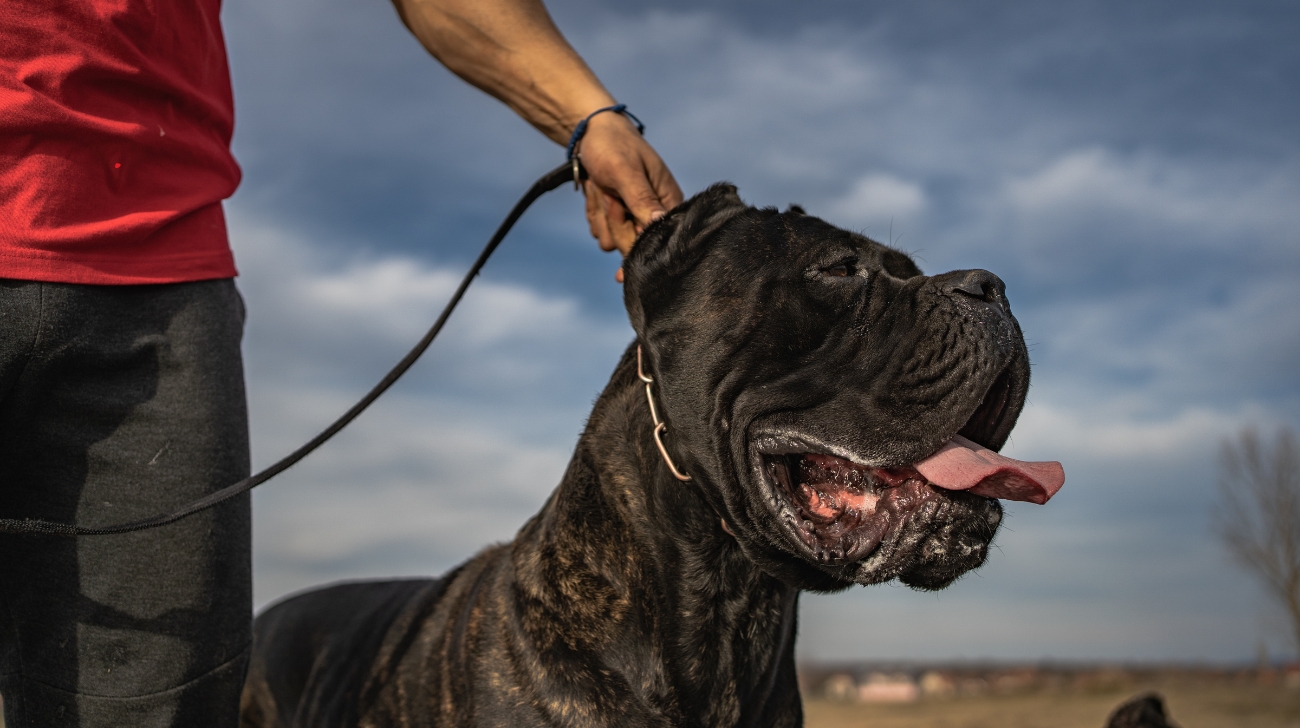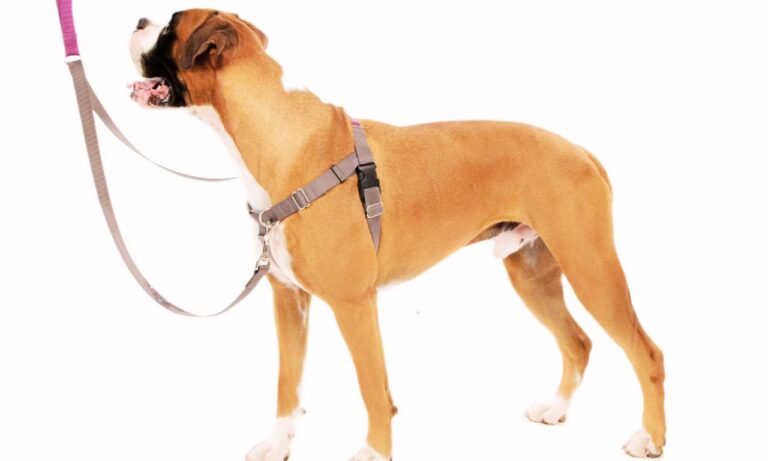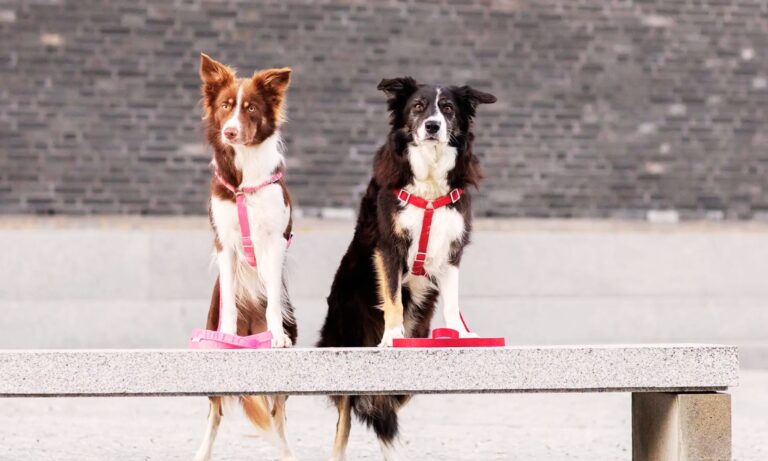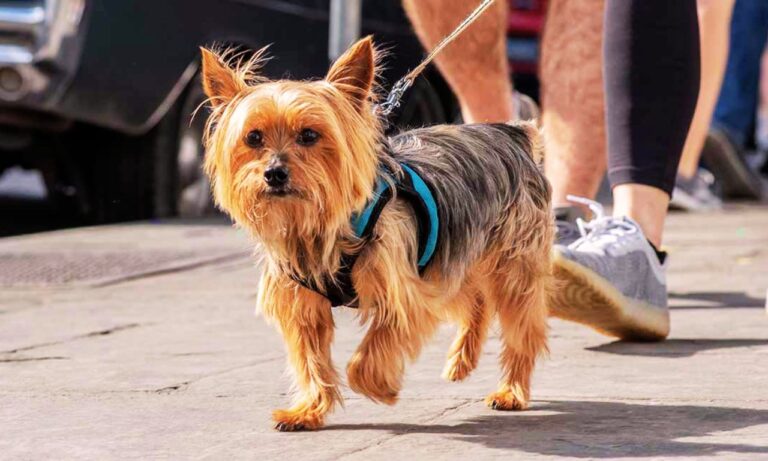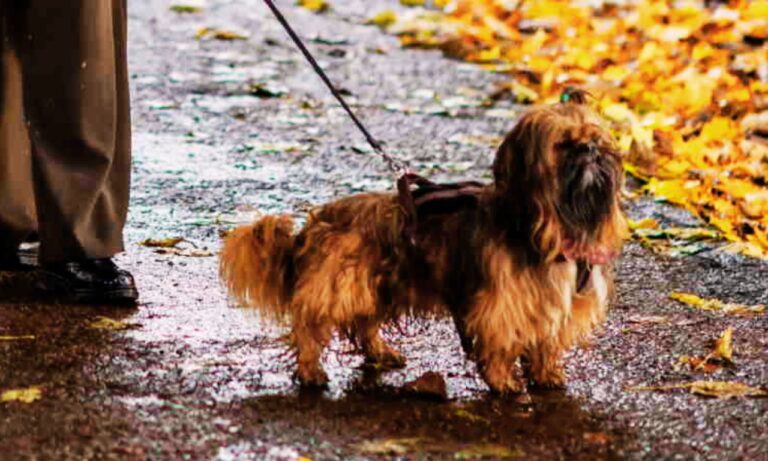The Cane Corso is a majestic breed known for its robust structure and impressive growth, making it essential for owners to understand their development stages. From birth through adulthood, the growth patterns of the Cane Corso can provide insights into their health and well-being. I’ll provide you a detail Cane Corso growth & weight chart. Get tips on training puppy with shock collar efficiently and effectively.
Blog Highlights
ToggleWhat Are the Early Growth Stages of Cane Corso?
A Cane Corso puppy experiences rapid growth during the first six months, reaching a significant portion of their adult height and weight. At birth, they generally weigh around 0.8 to 1.1 pounds, quickly escalating in the following weeks.
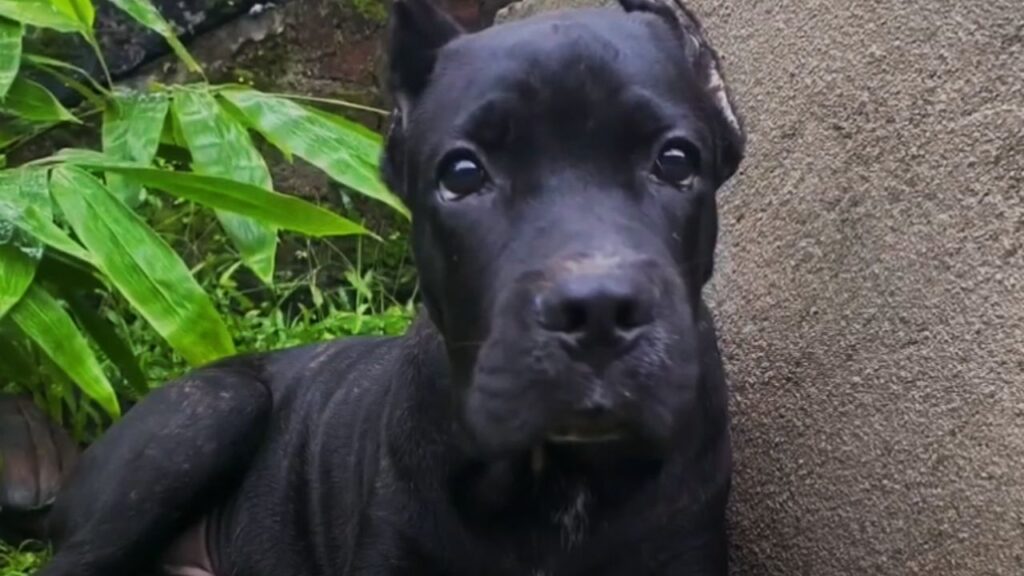
By three months, males typically weigh between 30-40 pounds and females slightly less. This growth continues robustly, with most puppies doubling their weight from six to twelve months. Find out if Cane Corso is a high-maintenance dog and what it takes to care for this powerful breed.
1. Key Growth Milestones
By the time they reach one year, male Cane Corsos usually weigh between 85 to 105 pounds, whereas females weigh slightly less. The growth pace slows down considerably after the first year, but they continue to fill out in muscle and frame until about two years of age. Explore the best training shock collars for puppies for safe training options.
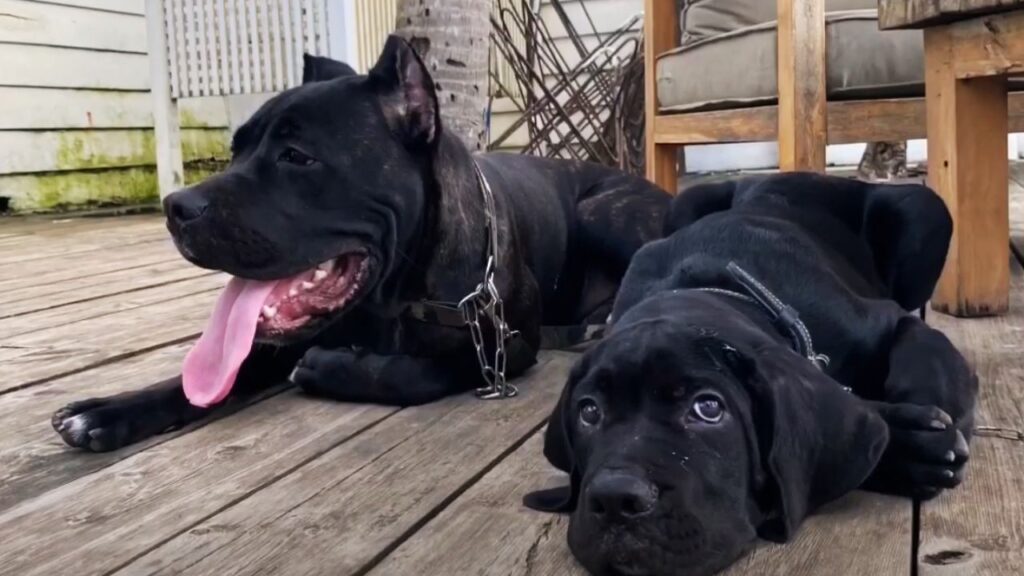
Male Cane Corsos will usually weigh between 100-140 pounds at full maturity and stand about 25-27.5 inches tall at the shoulder. Females, slightly smaller, typically reach weights of 85-100 pounds and stand between 23.5-26 inches.
2. Diet and Nutrition
Feeding a Cane Corso appropriately is crucial for their growth. Puppies require a diet rich in protein to support their rapid development, transitioning to adult formulas around one year of age.
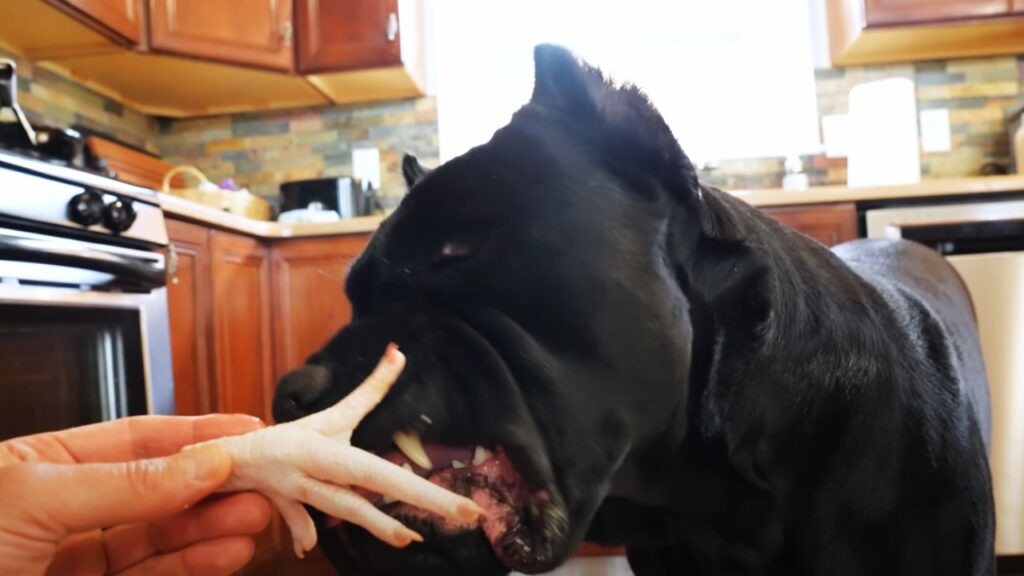
Owners should ensure the diet is formulated for large breeds to prevent growth-related health issues like hip dysplasia. As they age, maintaining an ideal weight through balanced nutrition and regular exercise is important to prevent obesity, which can exacerbate health problems.
3. Health Considerations
Genetics play a significant role in the development of a Cane Corso, influencing size and potential health issues. Reputable breeding practices are essential to minimize the risk of genetic disorders.
Regular veterinary check-ups are recommended to monitor their growth and address any concerns promptly. It’s also advisable for Cane Corso owners to consider pet insurance to help manage potential health care costs.
Cane Corso Growth & Weight Chart For Your Cane Corso
Here’s the Cane Corso growth & weight chart with filled height details for the 1-month age group:
Additional Points:
- Early Development: The growth from birth to six months is significant in both height and weight, as the puppy transitions through rapid development stages.
- Maturation: The growth tends to slow down after twelve months but continues to progress towards their full adult size, which they typically reach by two years.
- Gender Differences: Males usually end up larger both in weight and height compared to females, which is common in many dog breeds.
Keep in mind that these values can vary depending on many factors including genetics, diet, and health. Regular vet check-ups are crucial to ensure your puppy is growing healthily. Understand at what age can I start e-collar training for your pup.
Simple Nutrition Plans For Your Cane Corso
Creating a well-rounded nutrition plan for your Cane Corso is essential for their growth, health, and well-being. Here are four simple nutrition plans tailored to meet the needs of Cane Corsos at different stages of their life:
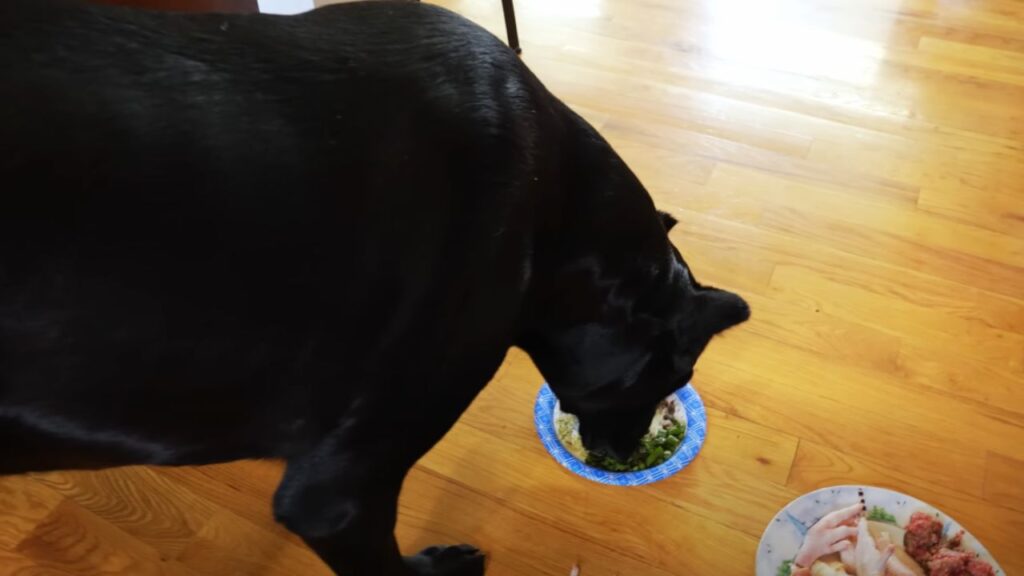
Plan 1. Puppy Nutrition Plan
For a growing Cane Corso puppy, a diet rich in high-quality protein is crucial for muscle development. Include lean meats like chicken, turkey, and beef, as well as fish such as salmon and tuna for omega-3 fatty acids, which are beneficial for reducing inflammation and promoting healthy muscle growth.
Eggs and dairy products like yogurt can also be good protein sources. Puppies should have meals divided into four servings throughout the day to support their fast metabolism and reduce the risk of bloat, a common issue in large breeds.
Plan 2. Adult Maintenance Plan
As your Cane Corso matures, their diet should consist of balanced proportions of proteins, fats, and carbohydrates to maintain their muscular physique and energy levels. A typical diet could include commercial foods that are high in animal protein and free from filler carbohydrates.
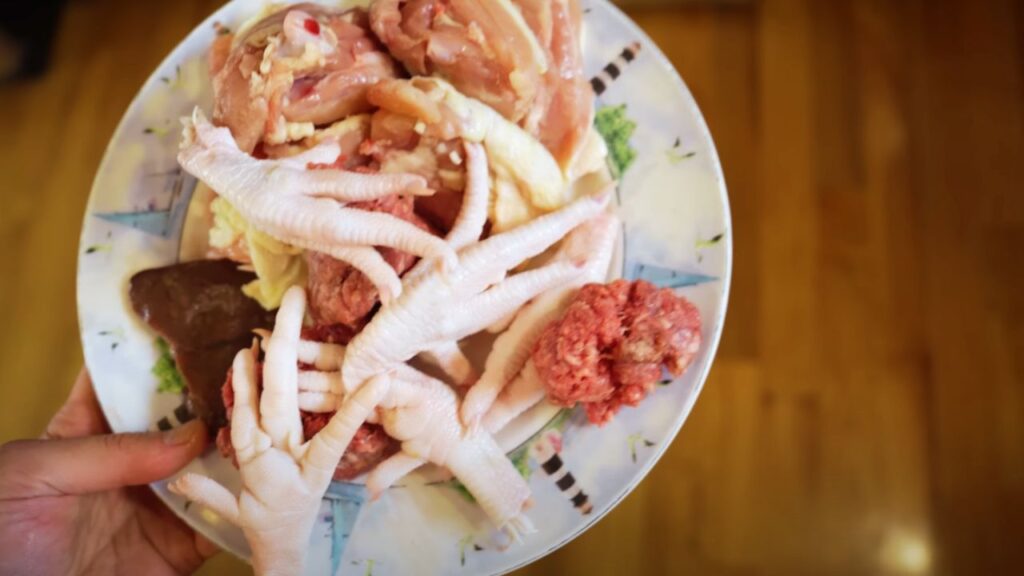
It’s beneficial to incorporate a variety of protein sources to minimize the risk of allergies. Adults should be fed twice a day to maintain a healthy digestive rhythm. Find out what size collar for Australian Shepherd for a perfect fit.
Plan 3. Senior Diet Plan
For older Cane Corsos, the focus should shift towards sustaining health with lower-calorie foods to prevent obesity, which can exacerbate joint issues common in large breeds. Incorporate lean proteins, low-fat dairy, and plenty of fiber to aid digestion. Continue feeding them twice a day, and consult with your vet to possibly introduce supplements that support joint health and cognitive function.
Plan 4. Homemade Diet Option
If you prefer a more natural approach, preparing homemade meals can be a great way to control exactly what your Cane Corso eats. A balanced homemade meal might include boiled chicken, brown rice, and vegetables like carrots and green beans.
Remember to discuss with your vet about adding necessary supplements like multivitamins and omega-3 fatty acids to ensure your dog receives all the required nutrients. Handling and storage of homemade food should be done carefully, especially if including raw ingredients.
Each of these plans should be adjusted based on the specific health needs, weight, and activity level of your Cane Corso, and always in consultation with your veterinarian to ensure they receive the best possible care and nutrition.
Special Considerations in Raising a Healthy Cane Corso
Regular veterinary care is crucial for maintaining the health of a Cane Corso throughout its life. These appointments allow for early detection and management of potential health issues common to the breed, such as hip dysplasia, heart conditions, and gastric torsion. Preventive measures, including regular deworming, vaccinations, and flea control, are essential to protect against common diseases and parasites.
1. Importance of Socialization and Training
Proper socialization and training are imperative for Cane Corsos due to their size and protective nature. Socialization should start early in puppyhood and continue throughout their lives. Exposing them to a variety of people, environments, and other animals helps mitigate aggressive or fearful behaviors.
Training should focus on obedience and control, utilizing positive reinforcement techniques. Early training not only helps manage their behavior but also strengthens the bond between the dog and its owner. Learn effective tips with how do I get my Australian Shepherd to stop barking.
2. Nutritional Needs Across Different Life Stages
The dietary needs of a Cane Corso will change as they progress from puppyhood to adulthood and eventually into their senior years. Puppies require diets rich in calories and nutrients to support rapid growth, while adults need balanced meals that maintain their health without promoting obesity.
Senior dogs often require lower-calorie diets to help manage weight gain due to decreased activity levels. Supplements like glucosamine can be beneficial for joint health in older dogs. It’s vital to consult with a vet to adjust the diet according to the dog’s health and activity level at each stage of life.
3. Managing Common Behavioral Traits
Cane Corsos are known for their loyalty and protective instincts, which, if not managed properly, can lead to dominance issues or aggressive behavior. Consistent, firm, yet gentle training is necessary to establish and maintain the owner’s role as the pack leader.
Behavioral training should include boundaries and behavioral expectations to prevent the development of undesirable traits. Activities that challenge them mentally and physically can prevent boredom and reduce the likelihood of destructive behavior.
4. Exercise Requirements
Cane Corsos require substantial daily exercise to remain healthy. Their routine should include not only physical activities such as walking or jogging but also activities that stimulate their minds, like advanced obedience classes or agility training.
Exercise helps to prevent obesity, reduces behavioral problems, and promotes overall well-being. For puppies, it’s important to balance exercise with the need to protect their developing joints, so activities should not be too strenuous or high-impact until they are fully grown.
5. Importance of a Supportive Environment
Creating a supportive environment for a Cane Corso involves providing a safe, comfortable space where they can relax and feel secure. This includes access to clean water, a nutritious diet, and a comfortable resting area.
Additionally, regular grooming and dental care will keep the Cane Corso clean and healthy. Owners should also ensure that their home environment accommodates a large dog’s needs, including space for exercise and a secure yard.
6. Challenges and Rewards of Owning a Cane Corso
Owning a Cane Corso comes with its set of challenges due to their size, strength, and protective instincts. However, with responsible ownership, these dogs can be loving, loyal, and protective companions.
They thrive in environments where they are part of the family with clear, consistent boundaries. The rewards of owning such a noble breed include companionship, security, and the unique bond that forms between Cane Corsos and their families.
Overall, raising a Cane Corso is a rewarding experience that requires a proactive approach to health care, nutrition, training, and socialization. By understanding and catering to their specific needs, owners can ensure their Cane Corso lives a long, healthy, and fulfilling life.
Final Thoughts!
Owning a Cane Corso comes with the responsibility of understanding their specific growth and health needs. Monitoring their development through regular weigh-ins and veterinary visits is crucial in ensuring they grow into healthy, well-adjusted adults. By providing a nurturing environment, proper nutrition, and preventive health care, you can enjoy the journey of raising a healthy Cane Corso.
This overview should serve as a guideline for owners to understand and support the growth stages of their Cane Corso, helping them achieve their full potential while managing their unique health needs effectively. Hope so, you understood the Cane Corso growth & weight chart. Discover the best collars for Australian Shepherd to suit your dog’s needs.

